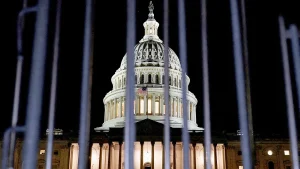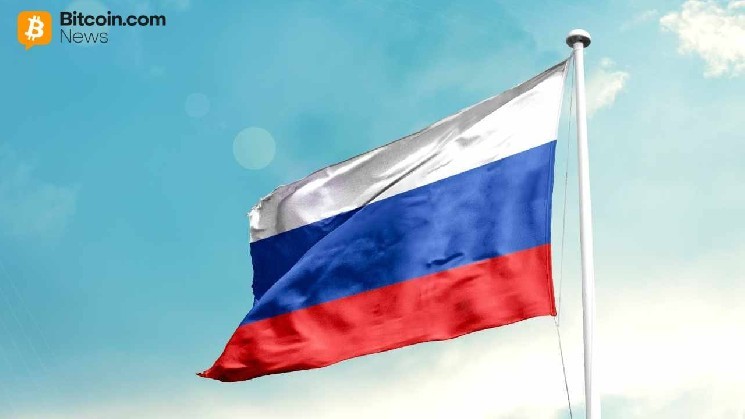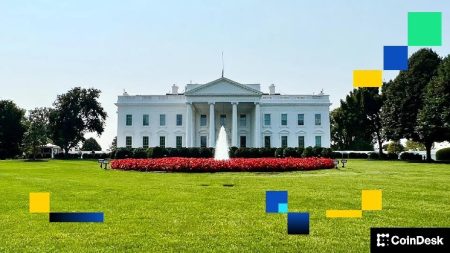Russia Accelerates Cryptocurrency Legalization for International Trade Amid Growing Sanctions
Moscow’s Strategic Pivot to Digital Finance Could Reshape Global Economic Relations
Russia is rapidly advancing efforts to integrate cryptocurrency into its foreign trade framework, marking a significant shift in global financial dynamics as the nation seeks innovative solutions to navigate international sanctions. This bold move signals Moscow’s determination to maintain economic sovereignty while adapting to the evolving landscape of digital finance in cross-border commerce.
Russia Backs Crypto for Foreign Trade Amid Mounting Sanctions Pressure
In a decisive move that underscores Russia’s commitment to financial innovation in the face of geopolitical challenges, Russian officials have accelerated plans to formally incorporate cryptocurrency into the nation’s international trade infrastructure. During a high-level strategic session chaired by Prime Minister Mikhail Mishustin, key financial authorities reached a consensus that cryptocurrency transactions in foreign trade should be legalized, while simultaneously strengthening the Bank of Russia’s supervisory authority over these activities.
Finance Minister Anton Siluanov articulated the government’s position in unequivocal terms during a statement reported by Interfax. “We see a significant area of work with cryptocurrency payments and cryptocurrency,” Siluanov explained, highlighting the practical applications already emerging in Russia’s international commerce. “Payments for imports, payments, and the withdrawal of currency from the country are carried out using the crypto market and cryptocurrency payments. Therefore, we agreed with the central bank on the need to streamline and legalize this market, with the central bank strengthening its oversight functions.”
The minister emphasized that this shift toward cryptocurrency is not merely exploratory but represents a strategic priority requiring comprehensive legislative frameworks. “We believe this area should be legalized, this area of activity should be regulated by law, and thus, together with Rosfinmonitoring and the regulatory agencies, we will be able to ensure and restore order in this sector,” Siluanov stated, underscoring the government’s determination to create transparent yet flexible mechanisms for crypto-enabled trade.
Coordinated Approach Between Fiscal and Monetary Authorities
What makes Russia’s crypto initiative particularly significant is the unprecedented level of coordination between traditionally conservative monetary authorities and the more pragmatic fiscal leadership. The strategic session included prominent participation from Bank of Russia Governor Elvira Nabiullina and Deputy Governor Olga Polyakova, signaling a harmonized approach between institutions that have historically maintained divergent positions on cryptocurrency regulation.
This coordinated effort extends to Rosfinmonitoring, Russia’s federal executive body responsible for combating money laundering and terrorist financing. By bringing this regulatory agency into the framework, Russian authorities are attempting to address international concerns about illicit finance while simultaneously creating pathways for legitimate trade flows through cryptocurrency channels.
The central bank has already initiated an experimental legal regime allowing cryptocurrency to be used in foreign trade under special provisions. Deputy Chairman Alexey Guznov described this initiative as a controlled environment to test regulatory approaches to cryptocurrency use in international economic activity. “If the results prove positive,” Guznov noted, “the regime could be expanded, potentially extending to companies in special administrative regions.”
Bypassing Dollar Dominance: The Strategic Calculus Behind Russia’s Crypto Push
Russia’s embrace of cryptocurrency for international trade represents more than technological innovation—it constitutes a calculated response to the country’s increasing isolation from traditional Western financial systems. With sanctions limiting access to SWIFT and conventional banking channels, cryptocurrency offers an alternative infrastructure for conducting essential trade without relying on dollar-denominated settlement systems or Western financial intermediaries.
Industry analysts suggest that Moscow’s strategy leverages inherent advantages of blockchain technology, including transaction immutability, censorship resistance, and the ability to facilitate direct peer-to-peer transfers across borders without traditional banking involvement. These characteristics make cryptocurrency particularly well-suited for circumventing geopolitically motivated financial restrictions.
“What we’re witnessing is the emergence of parallel financial systems,” explains Elena Voronova, an international trade expert at Moscow’s Financial University. “Russia is essentially building alternative economic infrastructure that operates outside the sphere of Western influence while still enabling vital commercial relationships with trading partners worldwide.”
The geopolitical implications extend beyond Russia’s immediate economic concerns. By pioneering state-backed cryptocurrency use in international trade, Moscow is creating potential templates for other nations facing similar restrictions or seeking to reduce dollar dependency. Countries from Iran to Venezuela are closely monitoring Russia’s experiment, potentially creating momentum for a broader shift in how international commerce operates in sanctioned environments.
Implementation Challenges and Regulatory Frameworks
Despite the strategic vision, Russia’s cryptocurrency integration into foreign trade faces substantial implementation challenges. The government must develop comprehensive regulatory frameworks that satisfy international anti-money laundering standards while still providing enough flexibility to facilitate practical commercial applications. This balancing act requires unprecedented coordination between multiple regulatory bodies and the private sector.
The experimental legal regime launched by the Bank of Russia represents the first phase of this complex implementation process. By creating controlled environments to test various regulatory approaches, Russian authorities hope to identify optimal governance structures before broader deployment. This measured approach reflects recognition of the significant technical and compliance challenges associated with cryptocurrency adoption at a national scale.
Cryptocurrency market volatility presents another critical consideration. While digital assets offer pathways around traditional banking restrictions, they also introduce new forms of market risk for Russian exporters and importers. The government is reportedly exploring mechanisms to mitigate these concerns, including potential state-backed stablecoin initiatives and specialized insurance products for crypto-denominated trade contracts.
Global Implications of Russia’s Cryptocurrency Trade Initiative
Russia’s move toward cryptocurrency-enabled trade settlements could catalyze similar approaches worldwide, potentially accelerating the fragmentation of the global financial system into competing technological and regulatory spheres. If successful, Moscow’s initiative may establish precedents for how nations can maintain economic sovereignty despite exclusion from Western-dominated financial networks.
The implications extend beyond sanctioned economies. Developing nations frustrated with the structural limitations of the existing international monetary system may view cryptocurrency as offering greater autonomy and reduced transaction costs. Russia’s experience could provide valuable insights for countries seeking to modernize their cross-border payment infrastructure regardless of geopolitical positioning.
For Western policymakers, Russia’s cryptocurrency pivot presents complex challenges. Traditional sanctions tools designed for the conventional banking system may prove less effective against decentralized financial technologies. This could necessitate new regulatory approaches and international coordination mechanisms to address emerging financial channels.
As one senior Russian banker noted on condition of anonymity, “What we’re building isn’t just a workaround for current restrictions—it’s potentially the foundation for a fundamentally different approach to international finance in the digital age.” Whether this vision materializes as Moscow hopes remains uncertain, but the initiative nonetheless represents one of the most significant state-backed efforts to integrate cryptocurrency into core economic functions.
As Russia continues developing this experimental framework, the international community will be watching closely to determine whether cryptocurrency truly offers viable alternatives to traditional financial infrastructure for sovereign states navigating a fragmented global economy. The outcome could reshape not just Russia’s economic prospects, but the future of international trade settlement systems worldwide.















